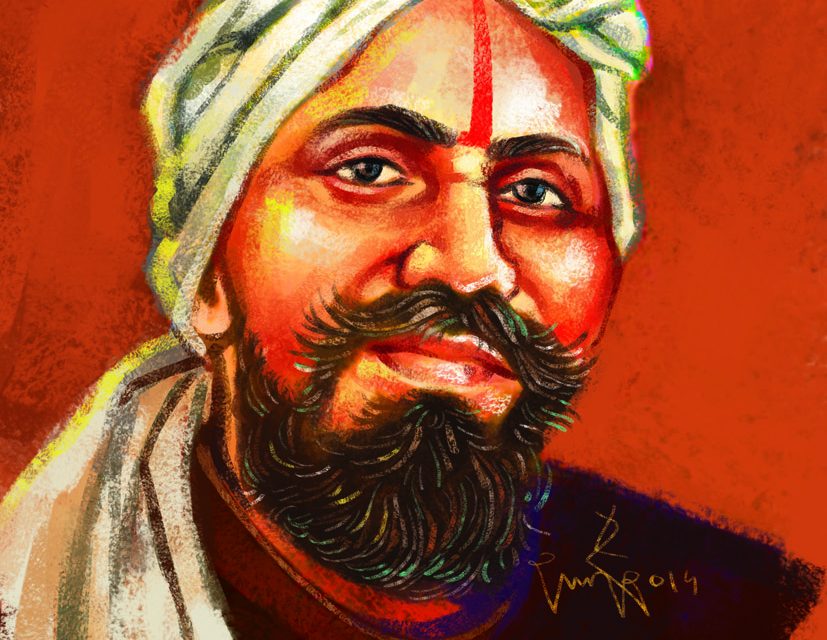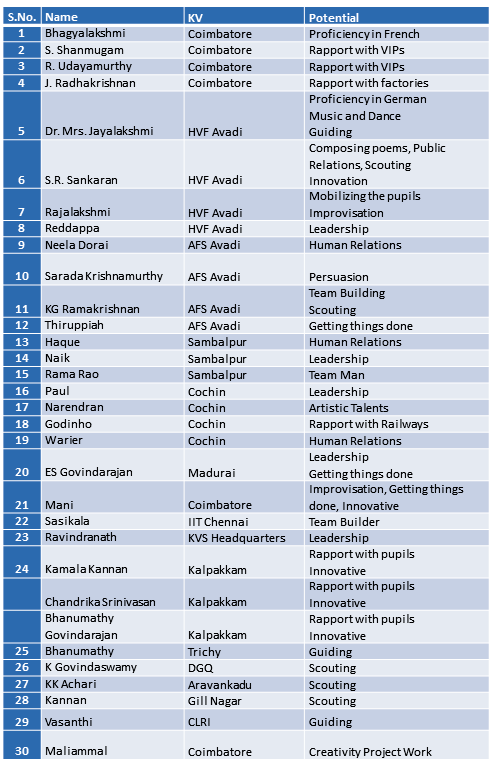VOLUME 3 CHAPTER II – SUCCESS EQUATION
See the light at the end of the tunnel
In 1964, the Author was asked by his Mentor and Director to take six Deputy Secretaries from Tanganyika (who had come for training in Community Development) to meet the famous industrialist of Coimbatore, Sri G.D Naidu. While talking to them Sri Naidu told them in his own characteristic manner that success is the ratio between input and output.
S=O/I

He said if your input is 5 units and the output is 10 units, the ratio is 2-positive. If the output is 5 units then the ratio is 1-just neutral. If the output is 3, then the ratio is .6-i.e negative. He said, “This applies to all fields compared to the efforts you put in. The result should be more quantitatively and qualitatively.”
This led the Author to think, “What are the parameters of the success equation in the field of education management”.
The first thing that came to the Author’s mind was a statement of A. G Lafley, Former Chairman of Procter and Gamble:-
“Everything starts and ends with understanding and serving the customers better. (Staff, students and parents)”
You have a beautiful lesson to learn from the life of Manuel Abey Sekera, Srilanka’s first woman career diplomat. When she was posted as Ambassador to Thailand, her driver used to address his boss normally as ‘Sir’, coined a new word to address her-‘Madam-sir’. She has christened her memoirs as ‘Madam-sir’ and that book gives the essence of her success. She had the knack of seeing the bright side in the grimmest situation and the ability to laugh at herself. With these two levers, the Author could manage very tough situations in his career. In every difficult situation, the Author tried to look out for a streak of light, a ray of hope, a line of exit and laugh at himself as to how he got into that situation. This attitude enabled him to unravel the octopus tentacles and come out successful, all the while retaining his sense of humor.
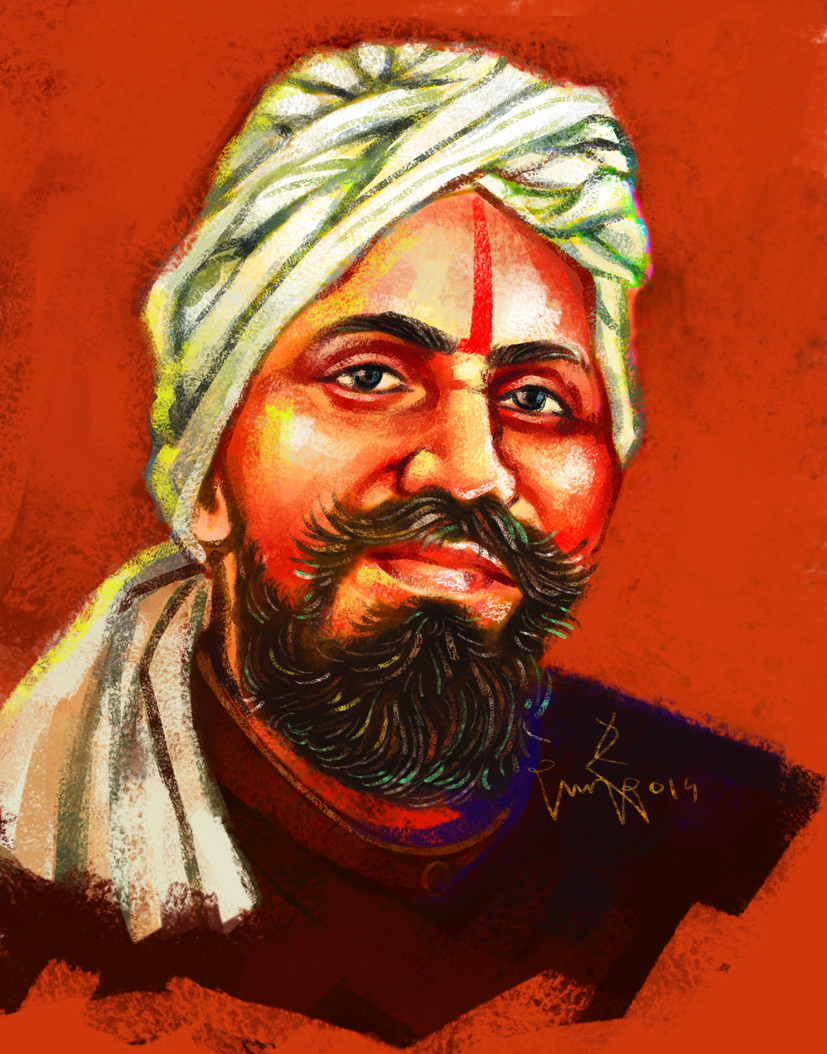 Subramanya Bharathi gives you a three-pronged approach to success.
Subramanya Bharathi gives you a three-pronged approach to success.
The first important thing is to discipline yourself in everything-from daily routine to punctuality, thought, speech and action, communication, manners and integrity and character.
The second one is seeking the welfare of others. As a Principal, you must always be concerned about the well-being of every staff. Happy staff – > happy students -> happy parents. Even as Lord Krishna removed Kuchela’s poverty without the latter telling a word about it, you should help the staff.
The third one is rushing to help others when there is an emergency using all your resources.
There was a situation in a KV. The PET was standing outside the ground and observing a football match. Suddenly a ball flew and hit his face. By reflex action, the eyes closed. However, his spectacles got broken. Fearing some small pieces of glass could have entered his eyes, he had to be shifted to the Government Eye hospital 30km away in an ambulance. The author rang up the Superintendent (whom he did not know) about the departure of the patient. He wanted excellent attention to be paid to the teacher. At that time, he suddenly remembered a thing he had seen in the TV a few days earlier. A patient in the railway hospital needed blood urgently for an operation. One doctor there, contacted a relative working in Chennai Doordarshan and through his good offices had an announcement made immediately after a popular programme and before the news. It made several people visit the hospital for donation of blood.
Remembering this, the author immediately phoned up his friend who was the President of a Lion’s Club and told him about the situation. Within ten minutes he rang back and said, ‘Two eye doctors of that hospital who are Lions living near the hospital have been requested to rush to the hospital to receive your staff. Do not worry they will take excellent care of him”.
Combine intellectual excellence with practical wisdom
![]() Another factor in your success equation should be your skill in balancing “expertise” and “experience”. You may become successful in one area – say, organizing sports meet or scout camps or cultural programmes like the film producers stamp an actor as fit for a particular role when his film hits the box office. Do not allow your department to put a specific stamp on you. In Coimbatore, a Headmaster had a stentorian voice and was an authority on Bharathiar. So he was requested to act as the MC for all functions by the District Collector. His expertise in the teaching of English faded into the background, because he started enjoying and reveling in this role.
Another factor in your success equation should be your skill in balancing “expertise” and “experience”. You may become successful in one area – say, organizing sports meet or scout camps or cultural programmes like the film producers stamp an actor as fit for a particular role when his film hits the box office. Do not allow your department to put a specific stamp on you. In Coimbatore, a Headmaster had a stentorian voice and was an authority on Bharathiar. So he was requested to act as the MC for all functions by the District Collector. His expertise in the teaching of English faded into the background, because he started enjoying and reveling in this role.
Your role as a Principal is a multi-faceted post. Do not get stuck up with only one role, over and above which your ability lies. In his book, “I need growth”, Sri S Ramakrishnan advises you saying, “At no time must you feel your capability to be greater than what the role demands. Instead, always think the role demands a lot more than you are capable of. This little bit of inadequacy in the job will keep you going”.
We see many people doing Hari Katha Upanyasam in the Vijay TV(Tamil channel). One of them seems to be donning the role of an adviser to the audience-his knowledge ego oozing out,while many others perhaps more scholarly than this person try only to put forth before the elite and erudite audience the subtle nuances in the theme chosen for the day, in all humility.
What is required of you as a professional all-rounder like Kapil Dev and Sachin Tendulkar who has the expertise to manage the process and the experience to motivate people?
Nani Palkhivala, Justice S Mohan, Prof.e S.V Chittibabu, Prof. A Srinivasa Raghavan, Prof. R Krishnamurthy – these were experts in combining expertise and experience, intellectual excellence with practical wisdom.
S.L Khanna, Dr H.P.Rajguru, C.A S Raghavan, K G Ramakrishnan of KVS, Sri S.Natarajan, K. Kuruvilla Jacob, T.P. Srinivasa Varadan, K.V Thiruvenkatachari Headmasters in Tamilnadu belonged to this category.
Tap the potential
 One important attribute of your success is your ability to work on your communication skills. You should chisel your words to suit the occasion. The context and the wording of the question should help you decide how much or how little you should say. Once immediately after the elections when a reporter asked a party leader “How many seats do you expect to win?” He replied, “Enough to form a government”. What a beautiful reply.
One important attribute of your success is your ability to work on your communication skills. You should chisel your words to suit the occasion. The context and the wording of the question should help you decide how much or how little you should say. Once immediately after the elections when a reporter asked a party leader “How many seats do you expect to win?” He replied, “Enough to form a government”. What a beautiful reply.
Adjust your speed and accent. It is not enough if you have a strong vocabulary. Your speed will just spoil the whole effect. Neither too fast nor too slow-maintain an optimum speed where your words are clearly audible. Do not be devoid of any emotion or let out a blast of emotional thunder.
Organize your thoughts well, develop the art of small talk to build up relationships.
The C E O of ‘Global Adjustments’-an organization to help expats to adjust to the local conditions once organized a group presentation on the positive traits of Indians. She coined a term ‘FALHI’ – and made each of the five members to speak on one aspect.
F – Flexibility
A – Adaptability
L – Loyalty
H – Hospitality
I – Intellectually Agile
This helped each one to stick to a particular aspect. You can also try this.
Look at the potential of a staff and the opportunity it provides you to use it for the benefit of the school. The Author used the following staff with regard to the potential noted against them.
Learn to distinguish between a youthful teacher and a young teacher. A person advanced in age can be youthful – bubbling in spirit and a person young in calendar years may be lazy, indolent and indifferent. Youthfulness is a factor of the mind, not the body. Until 84, Dr Abdul Kalam was quite youthful and buoyant.
Make full use of these “youthful aged staff”. At the time workout schemes to whip up the old young staff out of their slumber goad them into activity.
The Author had seen Principals who said, “I am not bothered if my staff are happy or not as long as they produce good results in the board examinations.” The Author used to gently remind them of Albert Schweitzer’s statement, “Success is not the key to happiness but happiness is the key to success”. He used to make them realise the difference between commitment and implicit execution, contract and covenant, enslavement and empowerment, given program and shared vision, doing the allotted work and transcending borders.
Your success depends on your creating a quality atmosphere, an abiding sense of purpose, a sense of belonging, freedom to think and act, just like Dr. Abdul Kalam did in DRDO (read his “Wings of Fire”), Chimanlal in Gujarat Vidyapeeth, Prof. Jha in Teachers College Patna, Professor Mani Sundaram in Regional Engineering College Trichy and Dr. M. S. Krishnan in the National Physics Laboratory, Pune.
Make your staff understand and internalise Immanuel Kant’s words, “happiness is an ideal, not of reason but of imagination.” Happiness is in the mind.
Proclaim what your school brand stands for
There is another facet to your success which demands your attention. You may think that ‘I am running the school efficiently. I have good staff. The results are good. But still the School’s visibility is very low in the society. I am unable to understand.’ You can be happy that Mr. Schinichiro Ito, the CEO of the Japanese Airlines – ‘ANA’ felt the same way at a point of time. He had a ‘Brand Awareness Problem’, in
Asia, Europe and USA. He wondered why his All Nippon Airways – Asia’s biggest carrier by passenger traffic, its exceptional service standards, modern fleet – did not enjoy an iconic status like Sony & Honda.

He realized that brand fame is a product of not only ‘being public but also being seen to be public’. He understood that he has to have broader frame of reference so that his brand may be viewed on par with Benz, Coke & Apple by the sophisticated clientele which he wants to touch. He realized that he has to tell the world what ANA stands for strongly and loudly.
This is a lesson for you. You have to proclaim what your School brand stands for on par with top flight schools.
Excellence is an attitude

In his theory of Hierarchy of needs, Maslow put ‘Esteem’ at the fourth level signifying self esteem, confidence, achievement, respect of others and respect by others. Mr. X’s child studies in your school. That should tell the society something special about him.
Linda Hill and Kent Backline give you a simple S.E. in their book – “Being the Boss – the Four imperatives for becoming a great leader”. They give three imperatives for you.
- Managing yourself (prove you are someone to be trusted)
- Manage your network (those outside your command structure on whom you depend)
- Manage your team (both as individuals and as a collective unit)
- Constantly evaluate yourself against what is required to get the work done and to create a cohesive, cooperative team)

To get at your S.E., Edward M Hallowell wants you to combine and use knowledge of psychology, neurology and sociology in his book “Shine-using brain science to get the best from your people”. He has given a five step “cycle of excellence” to achieve high –i.e. excellence in a consistent manner and continuous improvement in the ongoing activities.
His five steps of excellence are:-
- Figure out what you should be doing – help people find what they are good at.
- Create positive connections in the work place(school)
- Activate the imagination of your colleagues – build a culture of fair play.
- Grappling with tougher, challenging tasks- help people face difficult situations.
- Shining – when staff feel motivated, connected and want others to feel the same way – see that people get recognized and get the spark.
If you work out the first three well, then the next two would become a natural consequence.
As a natural corollary, you would do well to take the help of the business concept, “neuro-marketing” i.e diving into the sub conscious level where most of the decisions are made according to A K Pradeep, founder of neuro marketing research firm, ‘Neuro-focus’.
People take most of their decisions at the instinctive level, not the rational level”, says Prof. Baba Shiv, of the Stanford Graduate School of Business. This applies to the decision of parents also when they choose the school for their children. They do more by impression than perception. To help us understand this concept Baba Shiv gives the example of Toyota’s Corolla and GM’s Geo. The same production line made both the cars. People reported to have more problems with GM’s Geo than Toyota corolla, because in their mind Toyota was a better brand and could not be imperfect while GM’s cars were for rough use. In their perception, Toyota was a superior brand.
Once in a metro, in a reputed School, one Friday a child slept in class I in the last bench and the peon locked the door and went away. The child was found dead on Monday morning. The whole thing was hushed up lest the school’s image should get sullied.
In another School, the sewage manhole was kept open for sometime due to cleaning operations. Some parents raised a hue and cry and assembled a huge crowd which invited a press reporter who wrote that the crowd was anxiously waiting for a child to be fished out. The School’s name was in the press for two days.
Big school, rich school- so nothing can be wrong.
Small school not so affluent- so nothing can be perfect.
Many hats to be worn
Eyes with sunglasses!
 You as Principal are like a cycle wheel with many spokes coming out or converging at the hub. Compare yourself to a mother at home in a middle class family. She wakes up early, gets the children ready for school, irons their uniforms, her husband’s dress for the day, prepares breakfast, packs the lunch box, cleans up the household, relaxing a little while in front of the TV, shops for the next day, prepares tea, plays with children, helps them in their studies, gets the dinner ready, cleans the dining table and vessels, checks everything is safe before retiring to bed.
You as Principal are like a cycle wheel with many spokes coming out or converging at the hub. Compare yourself to a mother at home in a middle class family. She wakes up early, gets the children ready for school, irons their uniforms, her husband’s dress for the day, prepares breakfast, packs the lunch box, cleans up the household, relaxing a little while in front of the TV, shops for the next day, prepares tea, plays with children, helps them in their studies, gets the dinner ready, cleans the dining table and vessels, checks everything is safe before retiring to bed.
Like that, you as Principal have to perform multiple roles such as:-
- Administrative head
- Teacher
- Counselor

- Colleague
- Sub ordinate
- Higher authority
- Public Relations officer
- Chief Finance officer
- Liaison officer
- Cultural officer
- Artiste/ scouter
- A father figure
- Director of a course
- Trainee in a course
- Resource person for a course
- Exam center superintendent
- Chief supervisor of a central valuation centre
- President of PTA
- Advisor for alumni association
- Purchase officer
- Sportsman
- Chief Operations officer
- Chief Marketing officer
- Chief Materials manager
- Chief Transport officer
- Chief People’s officer
- Chief Responsibility officer
- Headconstable
- Chief Construction engineer
- Chief Maintenance officer.
- Over and above all these several hats have to be worn. The author always announced on the first day assembly after taking over a new school that he was proud to call himself as the first servant of the school.
Putting yourself in the mother’s role you should think of maximizing the benefit accruing to the school in every role you play. Even as the Mother’s thinks during shopping, which brand is the best for the well being of the family-she thinks of the tall, shaper, stronger Horlicks, the ready to cook MTR food items, the easy-to-cook Maggi noodles, the readymade Dabur ginger paste, the infection preventing Dettol, the fragrant Tide detergent etc.
She compares in terms of price and volume, durability and dependability. So also you shall compare and choose the things required for the school, but not on the basis of low price on the discount or freebies given to you. While purchasing items, the author used to ask the seller to add some more to the discount given to the last pie.
Adil Zianulbhai, Managing Director McKinsey and Co has the same advice for you. He says, “It is a big task to have a hands-on understanding of your work. It requires energy. Without it you cannot keep up. In the modern world people respect performance and not age. Young or old, you have to deliver.” He quotes the Chinese leader Deng Xiaoping, who once said, “I don’t care if it is a white cat or a black cat. It is a good cat as long as it catches mice.” You have to be a good cat and catch mice.
Perspective decides performance
 Your perspective decides your success. This truth was impressed on the author by his guru, Kulapathi Sri S. Balakrishna Joshi, in 1971 when he was transferred to Sambalpur from Chennai, he narrated the story of Jaya and Vijaya, the door keepers of the gates of Vaikunta, who were cursed by a Sage to be born on the earth as Asuras. Lord Vishnu asked them to be born as Hirnyaksha and Hirnyakashipu. When the former took the earth into the sea, the Lord took the form of Varaha, the Boar and killed him. When Hirnyakshipu tortured his son, the Lord came out as Narasimha and killed him. They were not killed, but, liberated. What apparently appears as a gruesome thing ultimately turns out into a blessing.
Your perspective decides your success. This truth was impressed on the author by his guru, Kulapathi Sri S. Balakrishna Joshi, in 1971 when he was transferred to Sambalpur from Chennai, he narrated the story of Jaya and Vijaya, the door keepers of the gates of Vaikunta, who were cursed by a Sage to be born on the earth as Asuras. Lord Vishnu asked them to be born as Hirnyaksha and Hirnyakashipu. When the former took the earth into the sea, the Lord took the form of Varaha, the Boar and killed him. When Hirnyakshipu tortured his son, the Lord came out as Narasimha and killed him. They were not killed, but, liberated. What apparently appears as a gruesome thing ultimately turns out into a blessing.
Saying all this, Sri Joshi asked the author to look at it as another opportunity to reveal his potential,as he had to clean the Aegean stables at Sambalpur.
Shri Joshiji reminded the author of the same story in 1983 when he was transferred to Delhi Headquarters.
In both the cases, the author could reveal his talent for leadership, teamwork, organizational efficiency under difficult situations and circumstances.
In North India, there is a saying that every bahu hopes to be saas one day. About the current saas (Principal) none has a nice word to say. Every teacher would like to become a Princpal and behave like a saas. Because they see the current Principal acting like that. It is due to the fear of your power and authority.
One Principal relied on his official power to get things done quickly. Because of your power your staff do not want to rub you on the wrong side It is difficult for them to nibble you and yet work with you. Theydo, because they have no option but to obey. They will not share their ideas with you because they feel that you are either a hot head or a nincompoop.
 So your S.E. depends on how persuasive you are, according to Prof. M. Monipally of IIM Ahmedabad. He compares it to an ayurvedic medicine which takes longer to cure but the result is long lasting. Once they accept your idea, your goading is not needed. They will proceed on their own steam. Use the Socratic method to pull them out. Perhaps they may come out with a better idea. When you present an extra work as a capacity enhancing one, they will jump at it.
So your S.E. depends on how persuasive you are, according to Prof. M. Monipally of IIM Ahmedabad. He compares it to an ayurvedic medicine which takes longer to cure but the result is long lasting. Once they accept your idea, your goading is not needed. They will proceed on their own steam. Use the Socratic method to pull them out. Perhaps they may come out with a better idea. When you present an extra work as a capacity enhancing one, they will jump at it.
You can make them follow you by using your personal power and not your positional power. Your personal power is a product of your expertise, credibility, integrity and trustworthiness. As Monipally says positional power comes into play only in the absence of personal power and at best it can only be a short term prop.
Over the years and many generations, Hindustan Unilever Limited has evolved a culture of coaching, mentoring and learning which the company believes is a unique strength and has made HUL to be referred by a leadership factory.
One Principal got his School the name nursery of Principals as many of his PG teachers became Principals. Nearly a dozen PG teachers who worked with the author were helped by him to become Principals.
Your S.E. is your transforming your school into a leadership factory.
Years back, the author attended a session with Edward De Bono, the great lateral thinking expert wherein he made a significant statement – ‘we may need to solve problems not by removing the cause but by designing the way forward even if the cause remains in place.’
Your S.E. depends not only on your removing the cause but on designing a way forward even if the cause remains. He asked us (participants) to react. The author said, “to me it looks like the Principal has to act like a cardio thoracic surgeon, who on opening the heart, sees a block, then cuts a portion of the vein, and fixes it there as a loop around the block, so that the flow of blood is made normal again, even though the cause – block – still remains.”
De Bono appreciated this example.
Stephen R. Covey is the author, appreciated and admired much by the author , who had worked with him in a workshop on ‘Action Research’. He makes you think about the linkage between great work and great career. In their book, ‘Great Work and Great Career’, Covey & Colosimo say that, irrespective of your line of work, you can have a great career. Then you may ask, “What does great career mean?”
To them you have a great career, when you unravel a Gordian knot, you face tremendous challenges and make an important contribution instead of going after fame or fortune.
In the field of industry, the Author’s mind immediately remembers just four names- B. Muthuraman of Tata Steel, Ramadurai of TCS, Y.C. Deveshwar of ITC, V. Krishnamurti of BHEL/SAIL. Similarly, in the field of education the Author could think of only six names – stalwarts or goliaths:
1.Kulapati Shri S Balakrishna Joshi of the Hindu Theological High School, Chennai
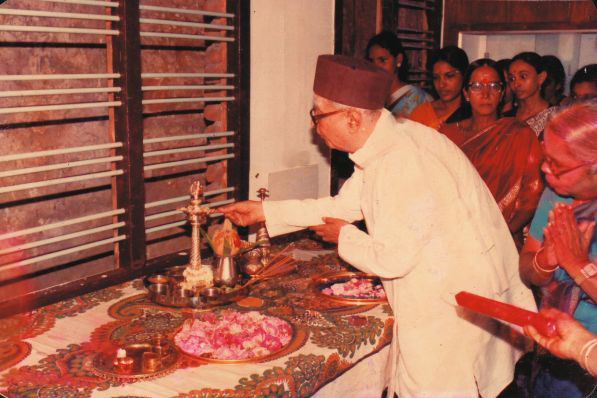
2.K Kuruvilla Jacob of the Madras Christian College, Chennai
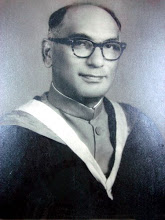
3.N Chinnaswamy Naidu of Mani High school, Coimbatore
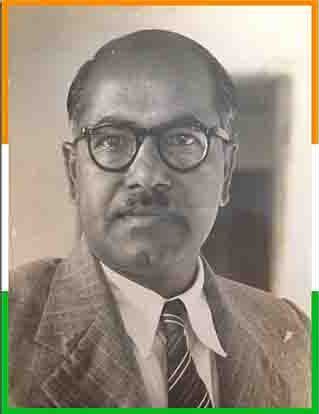
4.Venkateswarlu Naidu of Rajalakshmi High School, Coimbatore
5.Dr. S.S. Rajagopalan of Sarvajana High School, Coimbatore
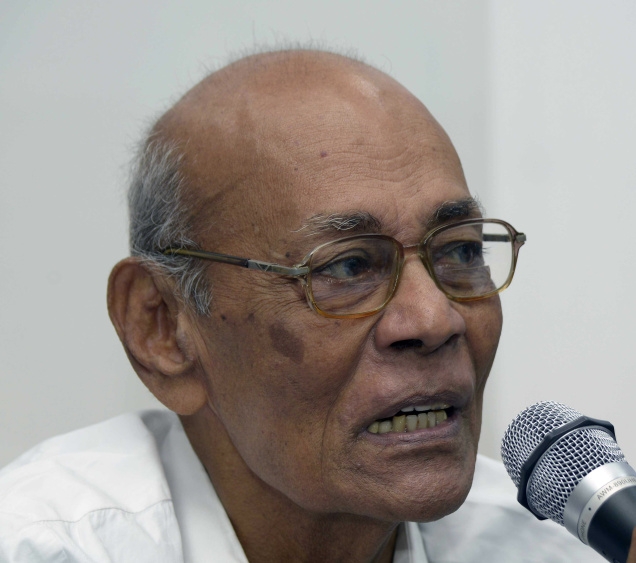
6.E.H. Parameswaran of Teerthapathi High School, Ambasamudram
Their names, their schools got inexplicably intertwined. They all made a great career in the same school.
Covey and Colosimo strongly assert that a great career does not rise from a need for outside affirmation, but from within you, from your own curiosity, from your own unique mix of talents and passion. It also rises from your conscience-from the whispers deep inside that point to you what you should do.
You should ask yourself, “what shall be my contribution? How will I make it?” ‘What’ depends on whether your work spots your talents, fuels your passion and satisfies your conscience.
‘How’ depends on your conviction, commitment, sense of belonging, urge to move forward, concern for students, ability to tap the potential of your staff and fire in your own belly.
~~~~~
(Place your comment/view about the article below.)
The father, the mother and the teacher are the three primarily responsible for moulding the future of the country. – Sri Sathya Sai Baba

